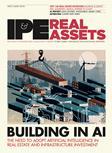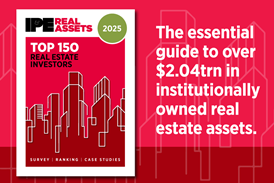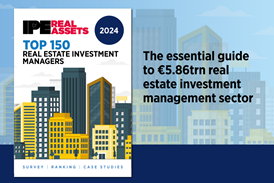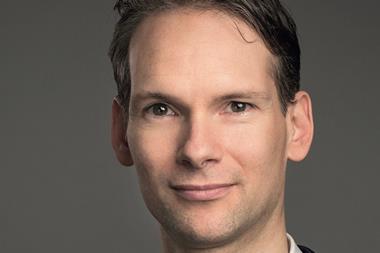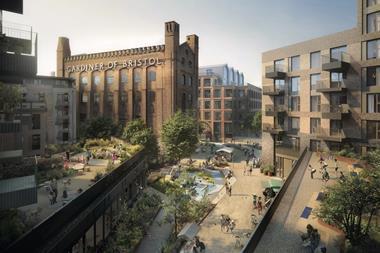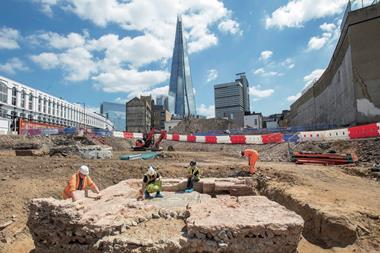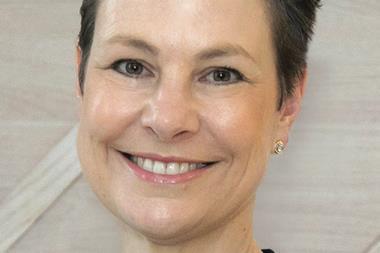Under the leadership of Jonathan Gray, real estate has become the biggest business unit of Blackstone. Gray joined the New York private equity firm in 1992, became of head of real estate in 2005 and joined the board of directors in 2012. By the end of September, Blackstone had $111bn (€94bn) invested in real estate. This year it has – among other things – drawn US pension fund capital into its $5bn-plus pan-Asian property fund, sold European logistics specialist Logicor for €12.25bn and bought a majority stake in a €30bn Spanish property portfolio.
Can Blackstone’s real estate business continue to grow at the rate it has in recent years?
“This is always a popular question. We’ve been very fortunate to have grown to a size where scale is a major advantage. It gives us great access to information and opportunities, expands our reach to attract talent and broadens our dialogue with tenants, lenders and sellers.
“Our growth over the past 25-plus years has been the result of delivering great returns to our investors. And while we’ve continued to grow, it is worth noting that we’ve returned over $80bn to our investors over the past four years. Delivering returns is our focus. As long as we continue to deliver on that, I expect our business will continue to grow.”
How important will the core-plus part of the real estate business be going forward? Is it expected to become as large as opportunistic activities?
“Today core-plus is $18bn out of $111bn of our investor capital under management. Four years ago, core-plus was at zero dollars. It’s still early days for this business and we’re keeping our focus on delivering returns for our investors. We don’t have a target size but we see a lot of potential growth.”
Has the move into core-plus real estate required changes in the business?
“We operate as one globally integrated real estate business – so we have the same team, the same process for both our opportunistic and core-plus business. Core-plus is very complementary to our opportunistic business and allows us to leverage our team, infrastructure and experience. The biggest change we’ve seen is that core-plus significantly widens the scope of where we can invest where we see value.”
What is your outlook for major real estate markets – especially the US, as interest rates go up, and London post-Brexit? How long can the current cycle last?
“The US is clearly in a more mature part of the cycle. Prices have increased a lot since 2010, cap rates are low and there is very little distress. On the positive side, supply is in check with commercial construction around 1.3% of total supply, the economy is growing 2-2.5%, debt markets are also in check and there is a healthy spread between cap rates and base rates. Overall, we expect to see continued positive, albeit lower, returns for US real estate.
“What is more interesting is that we’re seeing significant sector and geographic differences. Logistics, life science and creative/innovation offices are very strong relative to other segments of the US real estate market. Determining where to invest today and taking into account profound changes in technology and its impact is quite important.
“Turning to London, we’ve had a lot of success with our portfolio over the past year. We’re still seeing strong investor demand for quality London properties and we remain positive on the city long-term, even if we’re seeing a softer near-term leasing environment.”
Is Blackstone planning to move into new markets and strategies in the near future?
“Our approach to investing involves continuously forming a differentiated view, developing that view and then investing in that area. We’re always looking at new opportunities. We’ve purchased over 420m sqft of logistics space around the world since 2010. While we’ve exited some of these investments, we’re still quite positive on logistics. We’ve also been active in rental housing around the world where housing supply isn’t keeping up with demand.”
What is the key item on the agenda today for the real estate business?
“With 4% unemployment and potential fiscal stimulus, we’re keeping an eye on the chance of higher inflation and higher interest rates. On the positive side, with stronger global recovery in Europe and Latin America, we think stronger global growth and stronger revenue growth will be positive for fundamentals, cash-flow growth and values.”
What long-term macro trend will have the biggest impact on real estate markets over the next five years?
“Technology is transforming the global economy, including real estate. You can see the impact of Amazon and e-commerce on retail and logistics properties, the impact of WeWork and other flexible office companies on office space. These trends are causing big shifts in the demand for space and are challenging long-held views on desirable properties and locations. Our business involves finding opportunities in those trends, bringing to bear our 26 years of experience investing and creating value as owners so that we can deliver great returns to our investors.”

